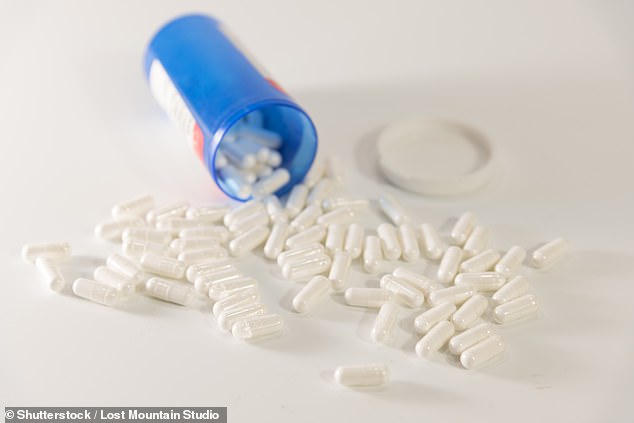NHS spending watchdog greenlights jab for patients with debilitating bowel disease ulcerative colitis
- The drug, mirikizumab, could benefit around 23,000 people in England
- It will be offered to patients who do not respond to other treatment options
Patients with debilitating bowel disease ulcerative colitis will receive a jab that tackles painful symptoms after NHS regulators gave it the green light on Friday.
Studies have shown that the drug mirikizumab can eradicate symptoms such as stomach pain and diarrhea in a quarter of patients after just twelve weeks.
The treatment is administered once a month and is offered to patients with ulcerative colitis who have not responded to other treatments. Around 23,000 people in England are expected to benefit, according to the NHS’s spending watchdog, the National Institute for Health and Care Excellence (NICE).
Ulcerative colitis occurs when the colon becomes inflamed due to the immune system attacking healthy body tissue, but there is no known definitive cause or cure.
Patients with debilitating bowel disease ulcerative colitis will receive a jab that tackles painful symptoms after NHS regulators gave it the green light on Friday

Around 146,000 people in Britain have the chronic condition, but experts suggest many more people remain undiagnosed and as many as one in 10 over-50s may have some form of the disease.
“This breakthrough is really great news for patients,” said Dr. Sami Hoque, a gastroenterologist who led the British arm of the mirikizumab trial.
‘I have patients who started mirikizumab in 2019 still taking the drug and experiencing very few symptoms. Currently, we don’t have any other medications that last as long.”
Around 146,000 people in Britain have the chronic condition, but experts suggest many more people remain undiagnosed and as many as one in 10 over-50s may have some form of the disease. Often the only symptom is diarrhea, which is easily mistaken for irritable bowel syndrome (IBS).
Treatment includes steroid tablets and some new biologic drugs that block the chemical signals that cause the immune system to attack the intestines.
However, these work in only a third of cases, some cause serious side effects and also lose their effectiveness over time.
Mirikizumab prevents the activity of a protein in the body called interleukin-23, which causes inflammation. In 2022, a large study concluded that 24 percent of those treated with it were in remission after twelve weeks. In almost half of the patients taking the drug, urgent toilet needs and bleeding disappeared, and no serious side effects were reported.
“This treatment works well even in patients who have not responded to other strong medications,” adds Dr. Hoque.
